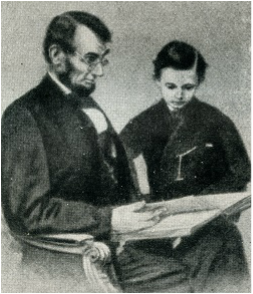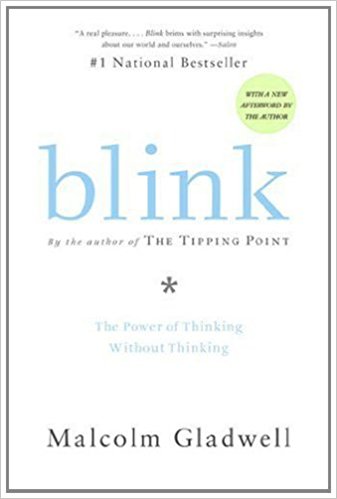 Picture two runners in a race. The first one is thinking, “I’m so tired. I’m not going to make it. My heel’s getting a blister. I should have gone to bed earlier last night. I should have drunk more water before the race. Everyone’s passing me. I’m not going to make it.” The second one is thinking, “Okay, not such a good idea to stay up late last night. I need to just pace myself, get to each fencepost. Feeling a little dehydrated. Well, nothing to be done about that now. Focus on the race. Catch up to that guy ahead of me. Plan better next time.
Picture two runners in a race. The first one is thinking, “I’m so tired. I’m not going to make it. My heel’s getting a blister. I should have gone to bed earlier last night. I should have drunk more water before the race. Everyone’s passing me. I’m not going to make it.” The second one is thinking, “Okay, not such a good idea to stay up late last night. I need to just pace myself, get to each fencepost. Feeling a little dehydrated. Well, nothing to be done about that now. Focus on the race. Catch up to that guy ahead of me. Plan better next time.
Psychology
Don’t Make Relationships in Your Own Image
 “My 19th wedding anniversary is coming up soon. I can hardly wait! Aundrea and I are going to go out for spicy Cajun food, and then we’re going to drive down the road with country music blasting, and then we’ll park somewhere secluded and I’ll snuggle up next to her and tell her how much I love her blonde hair and blue eyes.”
“My 19th wedding anniversary is coming up soon. I can hardly wait! Aundrea and I are going to go out for spicy Cajun food, and then we’re going to drive down the road with country music blasting, and then we’ll park somewhere secluded and I’ll snuggle up next to her and tell her how much I love her blonde hair and blue eyes.”
Is It Sinful to Be Unhappy?
 Desiring God: Meditations of a Christian Hedonist, rev. ed., by John Piper, Multnomah Press, 2011. Available in other formats and earlier editions.
Desiring God: Meditations of a Christian Hedonist, rev. ed., by John Piper, Multnomah Press, 2011. Available in other formats and earlier editions.
We were privileged to attend Capitol Hill Baptist Church in downtown Washington D.C. for the first decade of the new millennium. At some point early on in our time there the phrase “Christian hedonist” was booted about, as was the name of John Piper. I’d never heard of either. Then we had Piper as the preacher for a Sunday morning service; all I remember personally from that sermon is that he was so soft-spoken I could hardly hear him. Bookmarks with Piper’s ideas on “How Shall We Fight for Joy?” were passed out. To someone from my background this whole emphasis on Christians’ being happy was kind of weird. (I hadn’t read The Happiness Project yet, since it wasn’t yet on the scene, so I wasn’t thinking in that ballpark at all, in any context.
Passionate Happiness Pursuit
 I’ve been writing quite a bit recently about two subjects: tools and planning. As I write this I’m facing two frantic days to prepare for tomorrow night’s concert and reception. Yesterday I got all of my grocery shopping done, a task that I would normally have put off until today. So today can be solely dedicated to food prep that can be done ahead, housework, and going over my music. We have our second concert-week rehearsal this evening, which will be fraught with the usual angst over our entrances and exits. (Why we can’t just have a standard procedure that we always follow is beyond me, but I guess it keeps us from getting complacent.)
I’ve been writing quite a bit recently about two subjects: tools and planning. As I write this I’m facing two frantic days to prepare for tomorrow night’s concert and reception. Yesterday I got all of my grocery shopping done, a task that I would normally have put off until today. So today can be solely dedicated to food prep that can be done ahead, housework, and going over my music. We have our second concert-week rehearsal this evening, which will be fraught with the usual angst over our entrances and exits. (Why we can’t just have a standard procedure that we always follow is beyond me, but I guess it keeps us from getting complacent.)Procrastination Meltdown
 You know that warning given about mutual funds and other investments: “Past performance is no guarantee of future returns.” Well, if you’re a regular reader of the blogs on this website you may remember my post over in the food section about the last Cherry Creek Chorale retreat breakfast, which I said was pretty stress-free. I had things done ahead of time and it was almost a little bit boring to be standing around and waiting for the crowds to descend.
You know that warning given about mutual funds and other investments: “Past performance is no guarantee of future returns.” Well, if you’re a regular reader of the blogs on this website you may remember my post over in the food section about the last Cherry Creek Chorale retreat breakfast, which I said was pretty stress-free. I had things done ahead of time and it was almost a little bit boring to be standing around and waiting for the crowds to descend.
I should have remembered the slogan given above. Just because I did it right once doesn’t mean I’m going to do it right again. So I found myself strangely reluctant to get going this time. I wasn’t making anything too demanding, not like the previous sweet-roll extravaganza. Just homemade granola with yogurt and my signature green-chili-cheese-corn casserole. It was as if I thought that the lack of procrastination from last time would magically carry over to this time. But of course that wasn’t true.
It’s How You Think that Counts
I read this book about 30 years ago when I was an adjunct professor at the University of Colorado at Denver. One of my assignments to my freshman comp class was to write a book review, and one of my students wrote about this book. It’s funny how vividly I remember discussing its ideas with her and how little I tried to put them into practice!
The premise of this book is so simple as to seem simplistic: change your beliefs, your thoughts, so that you are telling yourself the truth, and your life will change.
The Power and Danger of First Impressions
 Blink: The Power of Thinking without Thinking by Malcolm Gladwell, Little Brown & Company, 2005.
Blink: The Power of Thinking without Thinking by Malcolm Gladwell, Little Brown & Company, 2005.
There’s so much to say about this relatively short book that I’m going to have a hard time keeping this post to a reasonable length. If you find yourself interested in the book already, then maybe you should go out and get it and not bother reading about it.
Still with me? Okay. You may or may not be familiar with Gladwell, whose other books are well worth reading also. I will probably have a post later on about his newest one, David and Goliath. He can probably best be described as a social psychologist. The premise of Blink is that we are constantly making decisions and coming to conclusions that are intuitive and instantaneous, and that much of the time we’re correct when we do this but there are solid reasons why those instincts can lead us astray.
You know what you know . . .
 . . . because you believe what you believe.
. . . because you believe what you believe.
Sounds as if I got my terms mixed up, doesn’t it? But I didn’t. I first heard this statement many, many years ago from the evangelist Bill Rice III, son of the founder of the Bill Rice Ranch in Murfreesboro, Tennessee. (The BRR is a Christian camp that began primarily as a ministry for deaf children, brought about because the Rices’ daughter Betty was deaf. As far as I can tell from the website, it’s still going strong today.) It wasn’t original with him at all, but it stuck with me from that sermon.
Shaming never works . . .
 . . . It’s only inspiring that works.” (Amit Sood, Professor of Medicine, Mayo Clinic)
. . . It’s only inspiring that works.” (Amit Sood, Professor of Medicine, Mayo Clinic)
I caught this statement on a radio segment about keeping New Year’s resolutions. It aired sometime in January, I think, and now I can’t find it, but I was so impressed at the time that I looked it up to be sure the quotation was correct and to get the name of the speaker.
What do you think? Do you find that you try to shame yourself or others into doing the right thing? What kind of results do you get?
